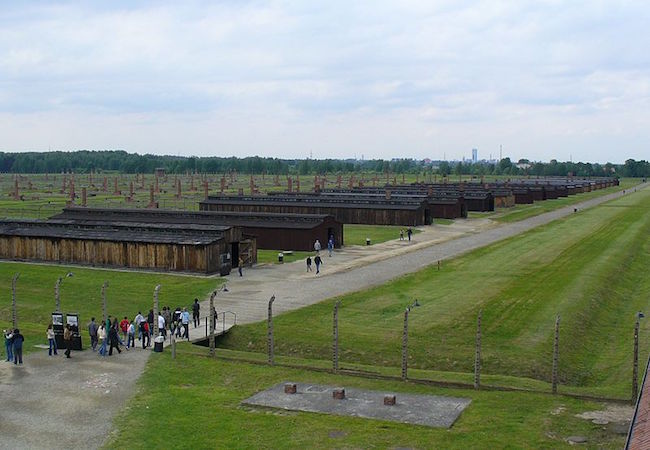
By MD Editorial Board
The last week’s Auschwitz ceremony marking 70 years since the notorious death camp’s liberation had a huge turnout. Three hundred survivors of the camp attended. Given the age of Holocaust survivors, the importance of passing their story on to new generations has never been greater. Comparing politicians to Hitler or countries to nazi Germany has become a commonplace insult. But the unspeakable horrors unleashed by history’s most vicious regime bear no comparison.
The Holocaust marked a systematic effort to exterminate entire ethnic groups — most prominently the Jews but also the Roma and Sinti — alongside the slaughter of homosexuals and the disabled. Millions of prisoners of war from the Soviet Union, Polish civilians and political and religious opponents of the nazis including communists, trade unionists, Freemasons and Jehovah’s Witnesses were also exterminated.
The world anti-fascist war which defeated the nazis resulted in efforts to ensure such atrocities would never happen again. But the collapse of the Soviet Union — which played by far the greatest part in defeating the fascist menace, as well as being the liberator of Auschwitz — has seen a deliberate attempt to rewrite history.
The European Parliament sponsors a Day of Remembrance for Victims of Stalinism and Nazism, a pernicious attempt to equate communism with fascism. As Russian communist Il Melnikov said yesterday, virulently anti-Russian regimes in the Baltic states openly celebrate Waffen SS veterans.
Monuments to the Red Army soldiers who, in Winston Churchill’s words, “tore the guts out of the nazi war machine” have been torn down and broken up in Estonia, Latvia, Lithuania and, since the fascist-backed coup of February last year, in Ukraine.
Ukraine has seen the worst of the resurgence of fascism. New Year’s Day in Kiev saw rank upon rank of torch-bearing neonazi thugs march in honour of Stepan Bandera, who murdered thousands of Ukrainian Jews and Poles during the second world war.
Far-right groups Right Sector and Svoboda do not even bother to hide their racism — but as allies of the pro-EU regime in the country are politely ignored by Western governments, deemed useful for crushing the anti-fascist resistance in the east which hampers attempts to bring Ukraine into the Nato military alliance.
That context explains Ukrainian Prime Minister Arseniy Yatsenyuk’s bizarre comments – during his recent visit to Germany – about the Soviets attacking Germany in the second world war, and the Polish foreign minister’s reluctance to acknowledge Russia’s role. Anyone who dared to acknowledge the historical reality would have no choice but to disown the Kiev regime. The shameful and highly disturbing failure to invite Russia’s president was part and parcel of the same narrative that paints the Soviets out of the picture. That is no comment on President Putin himself, a right-wing and authoritarian leader who presides over a corrupt neoliberal state. But freezing out the Russians indicates a further step away from the global anti-fascist unity established during World War II.
There are few signs that the lessons of that war have been learnt in the West. The United Nations, originally designed to prevent the world from sliding into war again, is increasingly sidelined as Washington, London and Paris ignore a body which cannot be relied on to approve the invasions and bombing sprees that are now a routine tool of Western foreign policy. As war rather than peace is increasingly seen as the natural state of things, as violence, hate crimes and racism are again on the rise, we should use the anniversary of Auschwitz’s liberation to remember where they lead.




